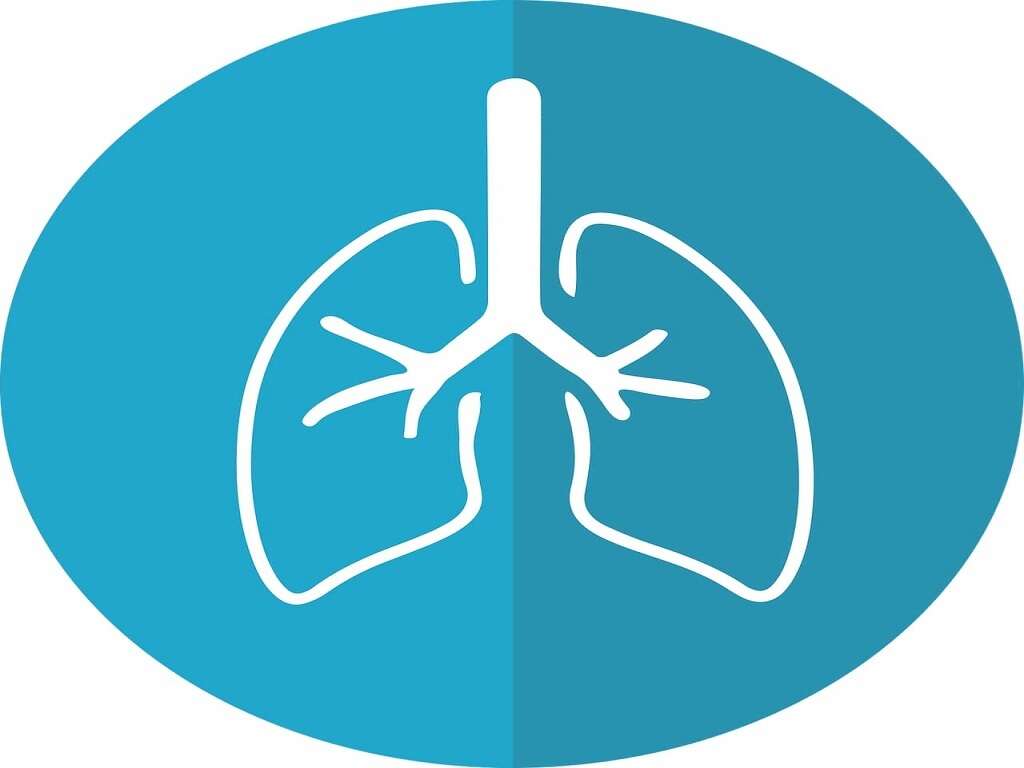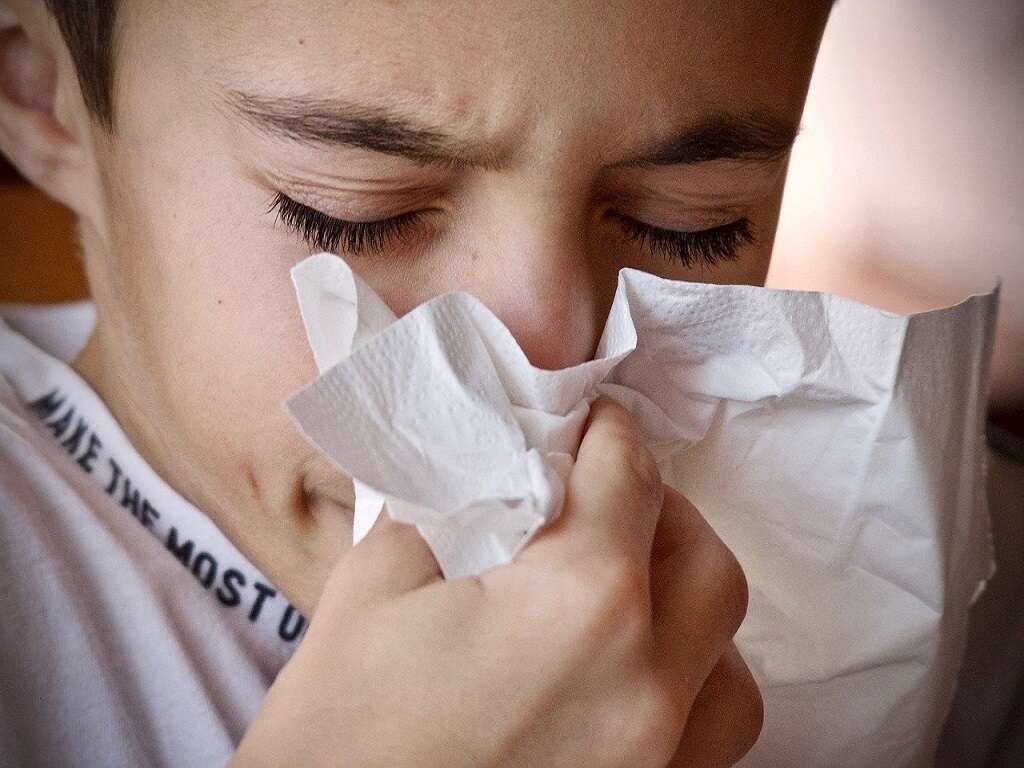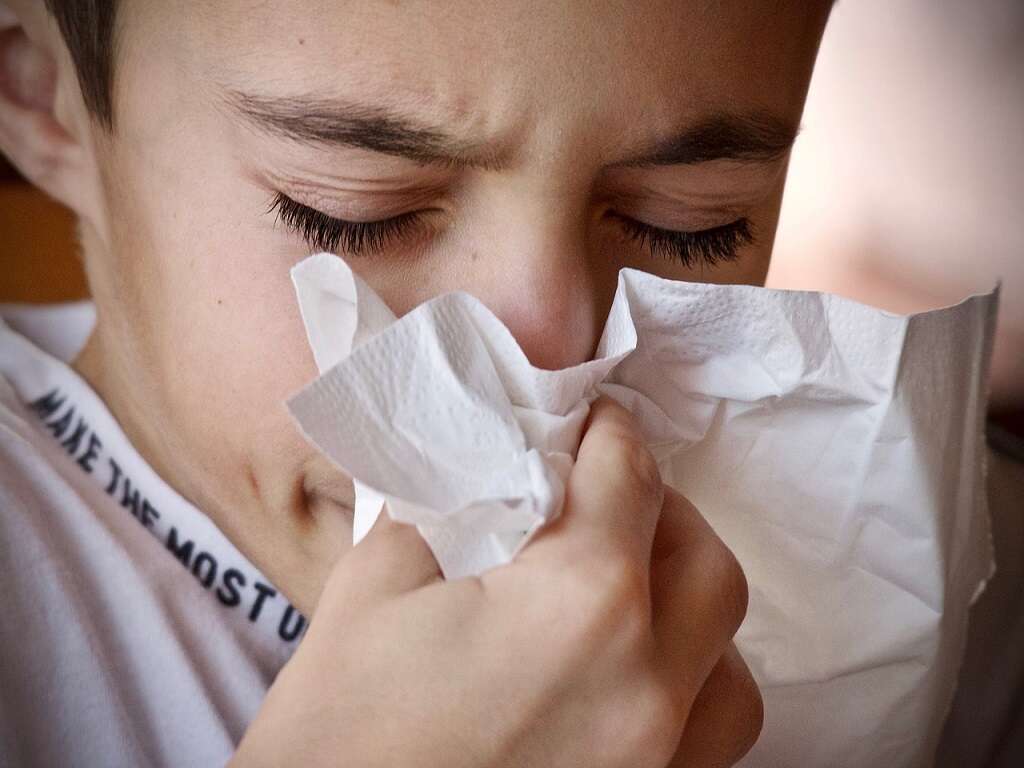10 Side Effects of Flu Shots
The influenza virus was once one of the biggest killers on the planet throughout history. Before modern medicine, a flu pandemic could kill millions of people and the virus is responsible for the famous Spanish flu of 1918 which itself killed up to around 100 million people. Modern medicines mean that the virus poses less of a risk than it used to, but it can still be deadly.
The influenza virus evolves quickly, making previous vaccinations less likely to be effective. This means that fresh flu jabs should be given regularly to keep up with the evolution of the virus. Those who don’t are at a higher risk, especially the very old and the very weak. The flu shot does carry some side effects but the protection it provides makes them worth it.

Flu Shots Side Effect #1: Headaches
A headache is among the most common form of ailment that people suffer from, and it can often occur for no apparent reason. The causes of headaches are vast and pinpointing the cause can be very difficult, although the cause can be quite obvious in many cases. One potential cause of a headache is as a side effect of a recent flu shot.
The headache associated with a flu shot is only likely to be around for a couple of days and should hopefully not be too uncomfortable. If needed, a painkiller like ibuprofen can help relieve the pain, but you should arrange an appointment to see your doctor if the symptoms are too severe.

Flu Shots Side Effect #2: Aches and Pains
Every now and then we are likely to experience aches and pains in our bodies. This can be down to having exercised heavily, generally being run down or maybe an illness. Aches and pains are also a fairly common side effect of recently having had a flu shot.
If you are experiencing aches and pains after a flu shot, you could try an over the counter pain-killer such as ibuprofen to help relieve the symptoms. The symptoms are likely to pass in a couple of days anyway and should hopefully not be too uncomfortable. You should arrange to speak with a doctor only if the symptoms become too uncomfortable.

Flu Shots Side Effect #3: Sore Injection Site
Many people are terrified of needles, while many more of us find them bearable even if we are not entirely comfortable with them. While the fear of needles is largely irrational, though, that is not to say that there is nothing to be concerned about at all. Some people can actually have some quite uncomfortable reactions to being injected with a needle.
One side effect of a flu shot can be soreness around the point the shot was administered. In addition to being sore, it can also become red, swollen and might feel warm to the touch. Although uncomfortable, these side-effects are not dangerous and should pass harmlessly within a couple of days or so.

Flu Shots Side Effect #4: Fever
A fever is a pretty sure sign that your body has been invaded by unwanted guests. It is one way that your body reacts to try and keep you safe. In a way, it can be reassuring because it is a reminder that your immune system is watching your back all day, every day. There is a good chance that you will develop a mild fever after you have had a flu shot.
The fever associated with a flu shot is only likely to last for a couple of days or so. If it does get too uncomfortable then there are various over the counter remedies that will help ease the symptoms. If the fever does run dangerously high then you should seek medical assistance as soon as possible.

Flu Shots Side Effect #5: Light-Headedness
If you go without eating for too long then you might find that you become quite light-headed. It can also be caused by other factors such as being in a hot and stuffy room or standing still for too long. It can also be caused by illnesses and a wide range of other factors.
If you have recently had a flu shot then you may well experience a sensation of feeling light-headed. You might need to sit down or lay down for a while and it should hopefully pass before long. The symptoms should pass overall within a couple of days or so although you should consider speaking with a doctor if the symptoms are too severe.

Flu Shots Side Effect #6: Sore Shoulder
Flu shots are usually injected directly into the shoulder with the needle penetrating into the muscle. It causes microscopic tears deep into the muscle and this can leave you feeling quite sore for a few days afterwards. Despite the soreness, though, no lasting damage will be done and your shoulder will be as good as new again in a few days.
As brutal as it may sound, this method of tearing the muscle is very much by design. The intent is to cause an inflammatory immune system response that helps the shot to be effective in vaccinating the patient. Over the counter remedies are available if the pain caused is too uncomfortable.

Flu Shots Side Effect #7: Rash
A very small percentage will have an allergic reaction to a flu shot. One side effect of this is to cause a rash, which is likely to occur around the point of injection. In addition to a rash, some mild itching may also occur but this will probably pass before long.
In some instances, though, the rash and the itching can be more severe. The itching can be intense and the rash can cover the whole body. If these symptoms do appear to be advanced then it is a sign of a severe reaction and you should get the patient to a hospital immediately. You should always tell your doctor before having a shot if you have experienced a bad reaction in the past.

Flu Shots Side Effect #8: Swelling
The area immediately around the injection site is likely to become a little swollen and sore. This is perfectly normal and is not something to be concerned about. If swelling does occur anywhere else in the body after having received the shot, though, then you should certainly take notice.
Excessive swelling is an indication that you are having an allergic reaction to the flu shot and that you should seek emergency medical help. Allergic reactions from flu shots can lead to anaphylactic shock and they do have the potential to be fatal.

Flu Shots Side Effect #9: Breathing Difficulties
Breathing is usually effortless for us unless we have just taken part in heavy physical exercise. Most of the time we don’t even realize we are doing it but sometimes even breathing can become difficult for us. Having difficulty breathing can be very alarming and can be caused by a number of causes.
If you have recently had a flu shot and you are beginning to experience breathing difficulties, you should seek emergency medical help. It is a strong indicator that you are having a bad reaction to the shot and that your life could be in danger. While there is a chance it will improve without assistance, it is best not to take the chance.

Flu Shots Side Effect #10: Guillain-Barré Syndrome (GBS)
Guillain-Barré Syndrome, or GBS, is a neurological condition that is experienced by a very small percentage of people after they have a flu shot. It is an autoimmune disorder which means that it is caused by the immune system attacking the patient’s own body. Symptoms include a tingling sensation, weakness and even paralysis. Advanced cases can be life-threatening.
Guillain-Barré Syndrome is so rare that there is little to be concerned about when getting a flu shot. If you do begin to experience the symptoms described, though, then you should seek emergency medical help immediately. If you are about to have a flu shot and you have experienced GBS in the past, you should always let your doctor know first.












